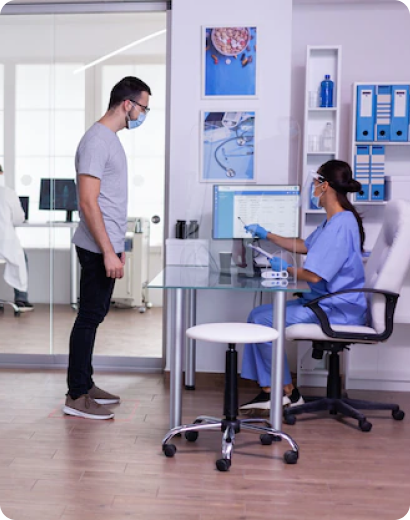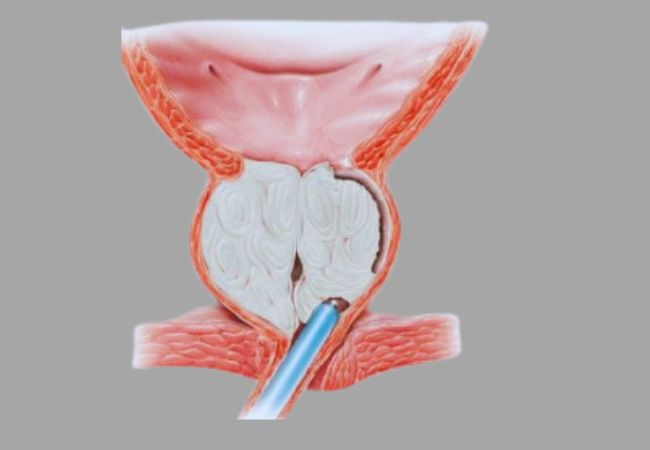
April 17, 2023
Robotic Surgery: A Revolutionary Breakthrough in Complex Urological Surgery
In the fluid space of surgery, especially in the domain of Urology, Robotic surgery is increasingly becoming popular. Robotic surgery is a minimally invasive technique and is finding breakthrough applications in urological interventions such as radical prostatectomy and partial nephrectomies.
Treating prostate cancer was the first and foremost area where Robotic surgery was initially applied. Robotic technology has, over a period of time evolved itself and has revolutionised urological surgeries. Robotic technology is a handy tool for surgeons especially while performing complex reconstructive surgeries. In fact most of the urological surgeries are carried out by targeting the pelvic region. However, performing a surgery by targeting the pelvis is pretty complicated. It is often very tedious to implant laproscopic instruments into the pelvic region. This results in high error margin accompanied by surgeon fatigue. Surgeries using the robotic technology helps to effectively circumvent many of these shortcomings.
While performing the operative procedure using robotic technology, the surgeon sits at a controlling console right near the patient. Further, an assistant surgeon is based out of the bedside, next to the patient. The surgeon watches through a video camera all the operative field and simultaneously controls several robotic arms from the console which in turn replicates the surgeon’s movements.
When compared with standard surgical techniques, an operating robot brings in several benefits and advantages. For one, robotic technology combines the precision and accuracy of a machine with the judgment of an experienced surgeon. The operation is performed laparoscopically, this means it is less invasive as it requires small punctures rather than creating a large incision.
Robotic surgery confers several benefits to the patient who has undergone the surgery. This modern surgical technique shortens the length of recovery time for patients. Most patients who undergo this intervention can return to normal activity in 2-to-3 weeks as opposed to the 6-to-8 weeks that is common to standard open surgery. This surgery results in less blood loss, thereby enabling a higher blood count. For a patient, the biggest advantage of a higher blood count is that it helps in a quicker return of strength and stamina post surgery.
Other medical conditions where robotic surgery can be performed include conditions such as Common upper urinary tract disorders including ureteropelvic junction obstruction and obstructed upper pole moiety in a duplex kidney. That’s not all: robotic surgery can also manage conditions such as Complex reconstructions for congenital abnormalities of internal reproductive organs. In this the procedures include robotic pyeloplasty and ureteroureterostomy.
Due to its high levels of precision, Robotic-assisted surgery is ideal for delicate as well as complex urologic surgeries. These include prostatectomies, in which the target site is tightly confined and surrounded by nerves affecting urinary control and erectile function. Surgeons who use a robotic system have an exacting tool that readily helps in avoiding damage to surrounding nerves. Robotic-assisted surgery provides similar benefits in children as well. This includes shorter recovery times and an improved cosmesis.
Conclusion
In sum, a Robot-assisted surgery is essentially an enhanced laparoscopic technique, that arrives with the following benefits for the surgeons:- 3-D visualization and magnification of the operating site.
- Enhanced brightness and resolution.
- Deamplification of movement: this means scaling the movement of surgical tools to distances that are up to five times smaller than what the surgeon’s hand would make.
- Improved wrist articulation
All these capabilities put together allows greater precision for a surgeon. Moreover, using robotic technology a surgeon has to make smaller incisions when compared with traditional laparoscopic approaches.
Dr.Kishore.T from Cochin Urology is an internationally renowned surgeon specializing in Robotic Surgery. Dr Kishore says “Overall, in my experience Robotic surgery has a 95% success rate. Robotic prostatectomies offer superior benefits for urinary function and sexual health as a whole”.


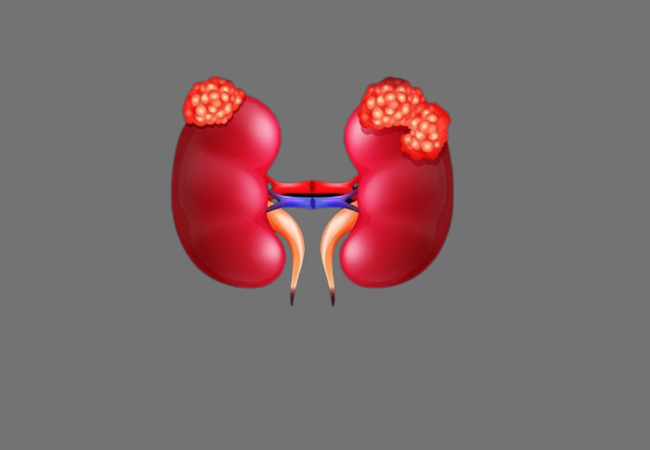
Kidney Cancer in India: All You Need to Know
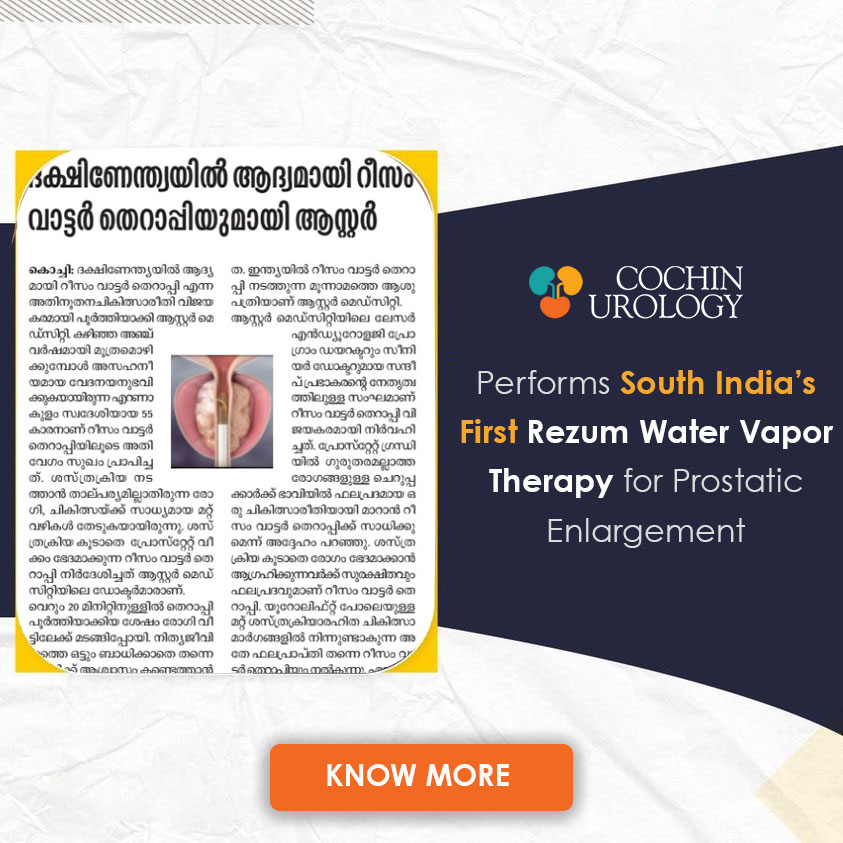
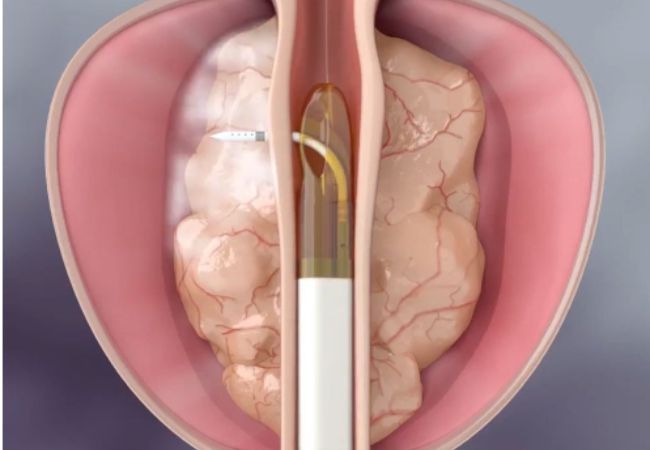
Rezum Water Therapy Treatment for Prostate Inflammation
Stories
Glimpses of what’s happening in Cochin Urology premises!
